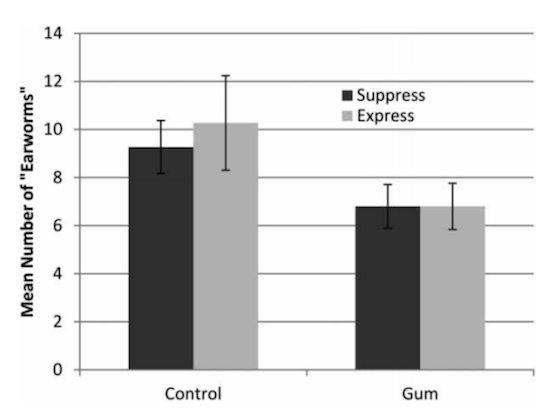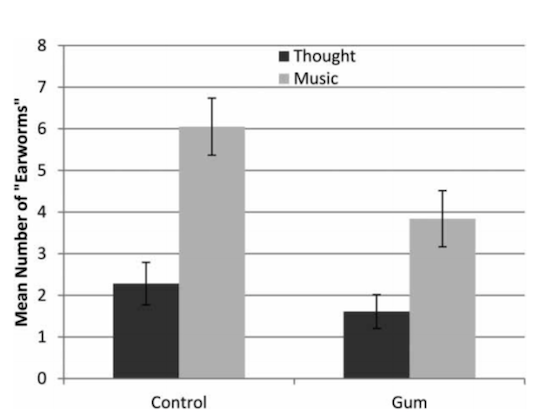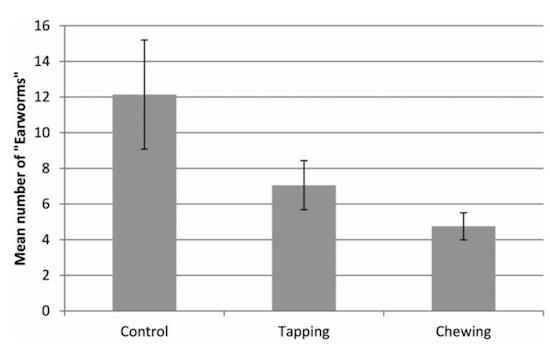Chewing gum helps to get rid of a song circling in the mind. The method is more effective than tapping your finger.

A small piece of song that goes over and over again in the head, without being able to get rid of it. Almost all of the population has already experienced this phenomenon that English speakers call “earworm” or earworm. But how do you get rid of it? Researchers at the University of Reading (United Kingdom) evaluated the effectiveness of two techniques: tapping with the finger or chewing gum. They publish their results in the Quarterly Journal of Experimental Psychology. It seems that distracting your mind with movement works quite well.
Chewing gum interferes
“It is quite an ordinary thing to have tired ears, or rather the memory obsessed with some sort of tintouin, by the refrain of a vulgar song or by a few insignificant shreds of opera. And the torture will not be less, if the song is good in itself or if the opera aria is worthy. It is the pen of the American novelist Edgar Allan Poe (1) which best describes the phenomenon. Like him, 99% of the population is affected by this phenomenon. A subject that fascinates as much as it divides. But so far, no scientifically proven solution has been published. It is now done.
Researchers at the University of Reading divided their work into 3 stages. In the first, 44 students listened twice, for 30 seconds, to the song Play Hard by David Guetta. They were then instructed not to think about it for 3 minutes. 3 minutes followed during which they could think freely. Some have chewed gum, some haven’t. In any case, if a volunteer thought of the song, they had to press a button. Those who chewed gum suffered less from “earworms.” According to the researchers, this activity “interferes with the formation of auditory imagery necessary to experience an involuntary musical memory.” “

Music comes back more often than words
Does the chewing gum make it possible to not think about the song, or not to hear it in our mind? The first experience does not allow us to confirm this. The researchers therefore recruited 18 students and reproduced the protocol. This time, participants had to press the “Q” button when they thought about the song, the “P” button when they heard it. It appears that the melody invades the thoughts more than the name or the artist. But in either case, chewing gum helps avoid unwanted memories.

The last experiment confronted another technique that aims to divert attention: finger tapping. 36 students listened to the full Payphone (Maroon 5). The instruction was to stop thinking about it for 2 minutes afterwards. Three groups were formed: those who chewed gum, those who tapped their fingers and the control group. The simple act of exercising a movement reduces intrusive thoughts, although chewing is by far the most effective method.

This is the first time that researchers have succeeded in demonstrating the effectiveness of a motor activity that solicits the joints. The practical impact is evident to them: “Chewing gum can be recommended as a technique that helps reduce unwanted musical memories. These results also show that this method directly affects the immediate memory of verbal elements.
(1) Quote from the poem The Demon of Evil (1845, Graham’s Lady’s and Gentleman’s Magazine), translation by Charles Baudelaire (1847).
.















